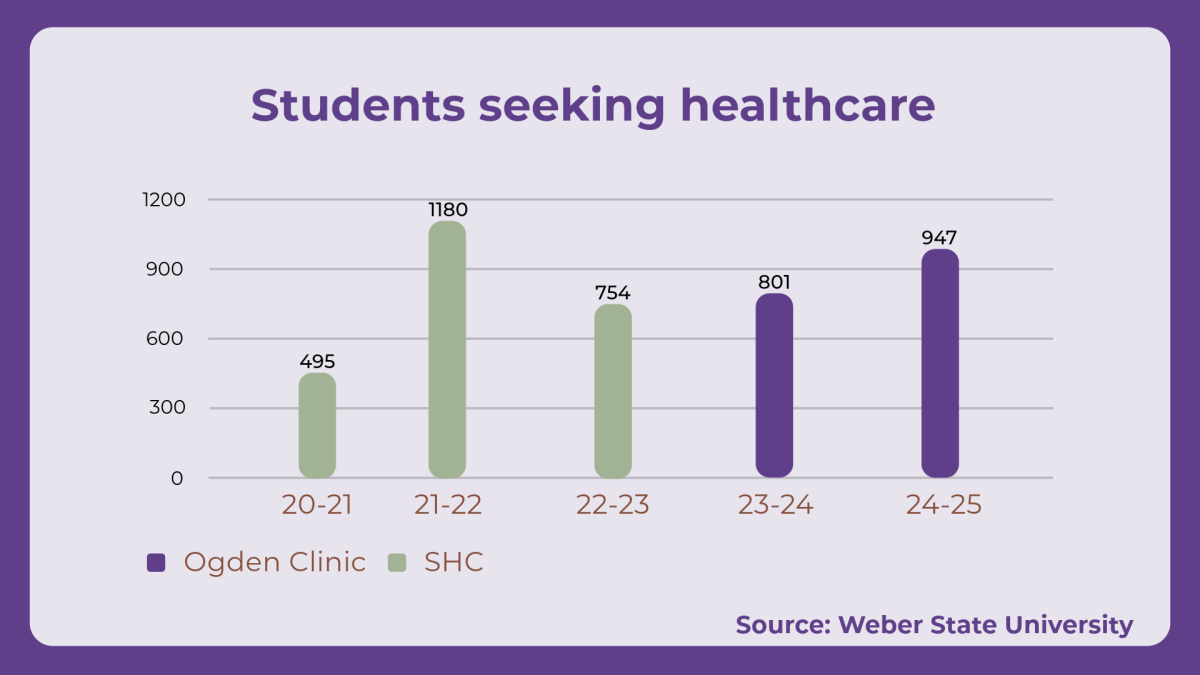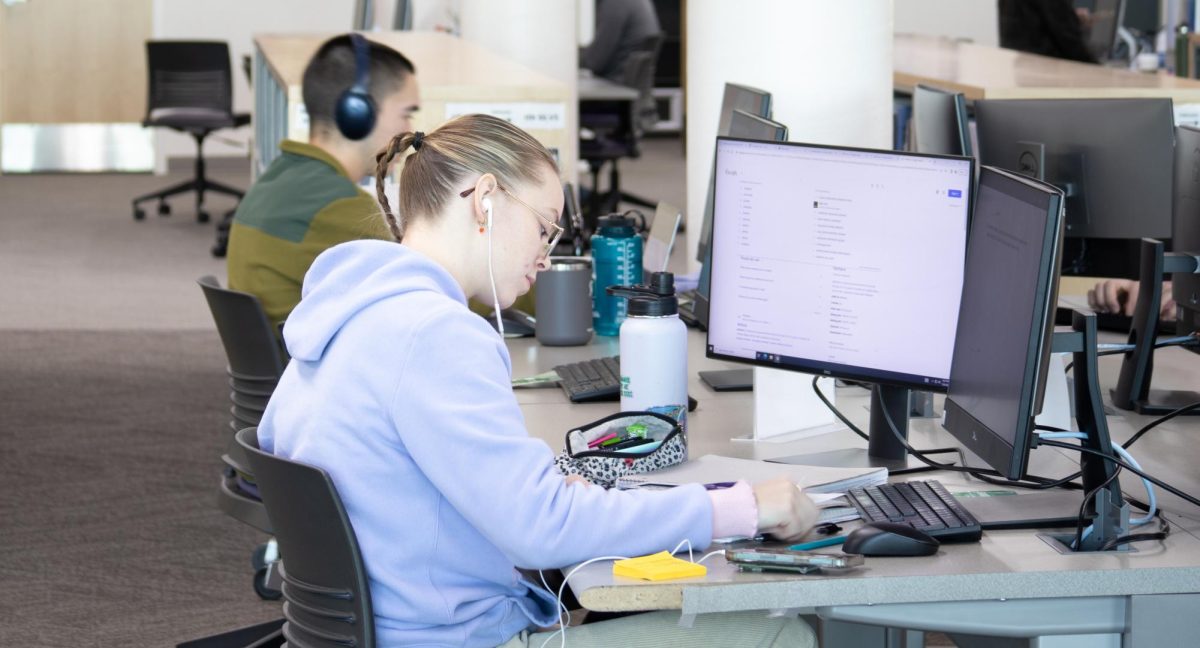Weber State University students and dogs co-existed peacefully on Monday as therapy dogs from the Intermountain Therapy Animals and Canine Companions for Independence came to campus to provide students with a fun and unique way to de-stress before midterms.
The dogs were a part of Stress Break, an event coordinated by the Student Wellness Center and the Counseling and Psychological Services Center at WSU.
The event gave students the chance to spend a little time with the therapy dogs. In addition to the dogs, there were also other calming activities, such as adult coloring pages, handheld maze-games and scented putty.

Rochelle Creager, coordinator for Student Wellness Center at WSU, said that by putting on this event, they are hoping to decrease stress among students during midterms and help them feel better prepared to take their exams.
According to The American Institute of Stress, eight in 10 college students report having frequently experienced stress in their daily lives.
“Stress is the number one academic impact for Weber State students,” Creager said.
The therapy dogs made their last visit to WSU during finals last semester.
Bob Lapine, a volunteer with the Intermountain Therapy Animals, said that therapy dogs prompt positive responses from students during a stressful time.
“(These animals) are such a stress reliever for students,” Lapine said. “Seeing the reaction from people every day, it’s unbelievable.”
Jaycee Funk, a senior at WSU, attended the event and believed the impact was positive.
“Just look around, everyone is smiling,” Funk said. “Things like this are awesome for students.”
Lapine said that there was such a positive response from WSU students last semester that the Intermountain Therapy Animals were immediately asked to come back in spring semester to visit students during midterms and finals.
Creager said that by combining multiple calming activities during Stress Break, students are able to identify some practical strategies they can use to handle stress.
However, Creager said that no one method is going to work for all students.
“It’s a trick of finding what works best for you,” Creager said.
Creager said that by coloring in adult coloring books, the part of the brain that is activated is the same part that would be activated if the person was meditating.
Madison Mcloud, a freshman studying criminal justice, believes it’s important for students to de-stress when they can.
“It’s fantastic,” Mcloud said. “I had just come up from taking a test in the testing center, and there were dogs everywhere. They are so sweet.”
Therapy and service dogs receive extensive training before becoming certified and Sterling Code with the Canine Companions for Independence states that only 35 to 40 percent of all dogs that undergo service training actually become service dogs.
Most dogs start training as puppies, finishing around 18 months and being sent to loving homes to help individuals in need. After training, service dogs can turn lights off and on, pick up accidentally dropped car keys and provide people with much-needed companionship.
It is reported by the Therapy Dogs International Inc. that therapy dogs positively affect people’s psychological, physical, social and behavioral levels. Whenever Lapine brings his pup, Murray, to events like Stress Break, he said that he is able to see people experience pure joy.
For students who missed the event on Monday, don’t stress. The therapy dogs will return again this semester during finals week. For more information on the next Stress Break, visit the Counseling Center’s website.


















